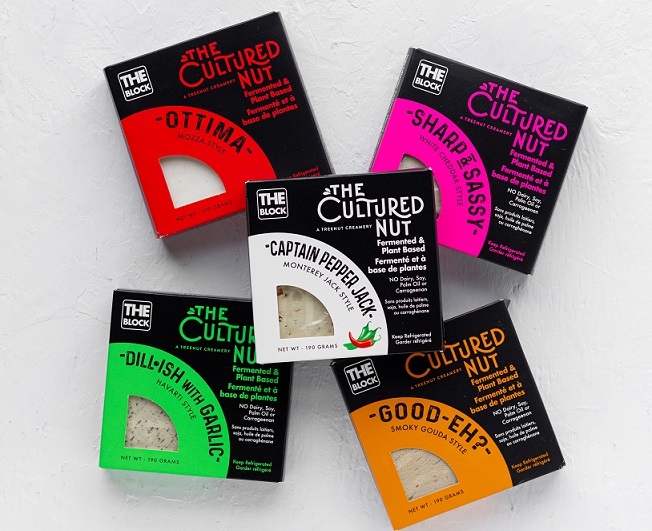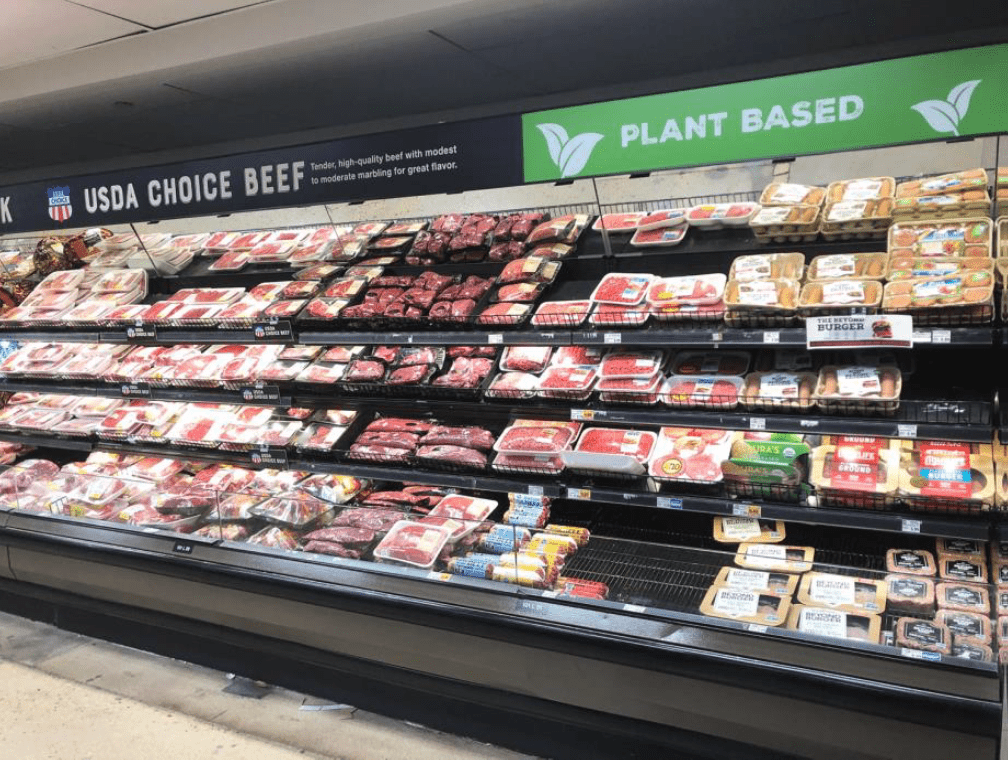Of all the current trends in the food industry, the boom in plant-based raw materials and products is certainly the one that is most profoundly changing the industry and the offerings on shelves.
Following the presentation of the Fi Global insights Plant-based Report 2022, Peter Link spoke to Kinga Wojcicka-Swiderska, Head of Content – Food, Informa Markets, about this megatrend and the opportunities and challenges it presents.
Peter Link: Kinga you have an excellent all-around view of the food and ingredients industry worldwide. What distinguishes the trend towards plant-based foods and ingredients from all the other trends we have seen in the industry over the past few years?
Kinga Wojcicka-Swiderska: This is a trend that is here to stay and it will become mainstream, because it is being fuelled by many issues. On the one hand there is the climate crisis, the fallout from the pandemic, the increasing world population and the significant rise in diseases. On the other hand, there is a growing awareness of sustainability, healthy food and animal welfare.
“It can be assumed that a predominantly plant-based diet will gradually become the norm”
It can be assumed that a predominantly plant-based diet will gradually become the norm in certain consumer groups. However, demographics play an important role, as younger people tend to be more concerned about the future of the planet, and they are also more open to new dietary approaches.

Peter Link: Looking at consumers and the market, what are the most important developments?
Kinga Wojcicka-Swiderska: Currently, the most important buyer group for meat and dairy alternatives is the growing number of flexitarians. There is also an ever-increasing choice of first-rate products on the market that make a plant-based diet more varied, tastier and easier to follow. This is of course a reciprocal effect because the interest and demand for such products is on the rise. Even discounters are giving plant-based alternatives more and more shelf space. The Austrian supermarket chain Billa for example recently opened an entire store containing purely plant-based products. This would have been unimaginable even a few years ago.
Peter Link: What can we say about this trend when looking at the industry?
Kinga Wojcicka-Swiderska: First things first, the speed at which manufacturers are launching new plant-based products is breathtaking – whether they are meat or dairy alternatives, or other categories such as vegan energy bars or vegetarian or vegan ready meals. In this segment, rapid prototyping is more commonly seen and the number of product launches is staggering.

Secondly, we are now seeing many meat and dairy companies expanding their portfolios to include plant-based alternatives. They are doing this not only because they recognise the attractiveness of the business segment but because they need to future-proof their companies.
Also, many ingredients manufacturers are adapting their portfolios to include plant-based protein sources: some are expanding their capacity on a large scale and others are creating dedicated business units or companies for their plant-based businesses.
Peter Link: In which areas do you see the most development?
Kinga Wojcicka-Swiderska: What is exciting is that development is taking place in almost all areas. For one thing, the variety of protein sources used is increasing. Whereas in the past we only thought of soya, oats, wheat or almonds, we are now also seeing peas, lupins, fava beans, mushrooms and numerous other sources such as algae and fermented products as key ingredients.

Sustainability has also become an important aspect: regionality and the lowest possible consumption of resources in cultivation are definitely criteria that play a role for consumers. A lot is also happening in terms of processing technology, because manufacturers are working on gentle, physical processes that should reduce or eliminate the need for additives. Another area of development has been the great progress that has been made in the field of sensory improvement.
Peter Link: What challenges does the industry face with regard to plant-based products?
Kinga Wojcicka-Swiderska: The availability and supply of raw materials is an issue at present, as well as the ongoing impact of the pandemic, uncertain supply chains and harvests, and staff shortages. Another challenge that the industry is facing is the need to further reduce the degree of processing of plant-based products – be this through new process technology or new packaging solutions to make the use of preservatives or other additives unnecessary.
“We are seeing many milk or meat alternatives lagging behind the “original” in terms of nutritional profile”
We are also seeing many milk or meat alternatives lagging behind the “original” in terms of nutritional profile. Therefore, it is important to formulate products or even fortify them with nutrients, with the goal of leveraging the nutritional profile so it covers all important nutrients in sufficient quantities. Pricing is also often discussed, because high quality raw materials are expensive, and consumers must be willing as well as able to pay for them.

Peter Link: What do consumers expect in terms of transparency and communication?
Kinga Wojcicka-Swiderska: Consumers are very sensitive when it comes to greenwashing. They want honest products and honest communication. When it comes to marketing, companies need to act with sensibility. There is also growing interest in the origin of raw materials: where do they come from, how are they grown, and what does that mean for the local people there?
Companies that disclose their supply chains and ensure transparency are well-placed in the eyes of consumers. This is true for all product categories, but those meat and dairy alternatives that stand for ethics and sustainability are looked at most critically. The importance of the right packaging solution should also not be underestimated.
Another key point for consumers is the story. Many plant-based products have a young and trendy image and can be classified as lifestyle products. If marketers have a great story to tell about the product, it will help.

Peter Link: If companies or start-ups are interested in creating or reformulating products: Where is the best place for them to start?
Kinga Wojcicka-Swiderska: A visit to Fi Europe 2022 in December in Paris or attending the show online is a good place to start, as it gives some great opportunities for research and networking. Here exhibitors present not only ingredients but also complete product concepts. Plant-based is also one of the main themes of the content programme with many presentations from industry experts around market and consumer insights and formulation strategies. Make sure to also download Fi Global insights Plant-based Report 2022!
“The segment is a category in its own right with numerous sub-categories”
Innova Market Insights has identified plant-based as the second-largest trend in the industry today. According to the market research company, it is no longer just about mimicking meat or dairy products. The segment is a category in its own right with numerous sub-categories, in which a clear “premiumisation” can be seen.

From 2018 to 2020, sales of plant-based products increased by 49 per cent in Europe, according to Innova, while last year saw a 59 per cent increase in new plant-based products with premium or indulgent claims.
The Fi Global insights Plant-based Report 2022 provides a concise overview of all key developments and trends within this category. It summarises market and consumer trends, presents the most important plant-based protein sources and also takes a look at less-known ingredients from algae or those obtained from cell cultures or through fermentation, such as tempeh, for example. The report addresses the important aspects such as texture, appearance and nutritional value of the products, and it introduces some of the most exciting new products in this segment, including meat and dairy alternatives as well as ready meals and convenience products. The report incorporates market research results from Innova Market Insights, Mintel or FMCG Gurus.





